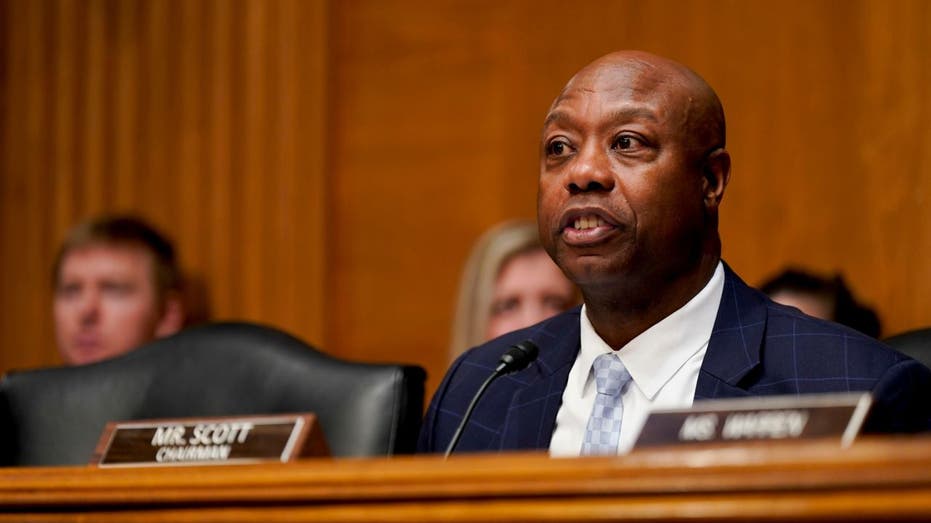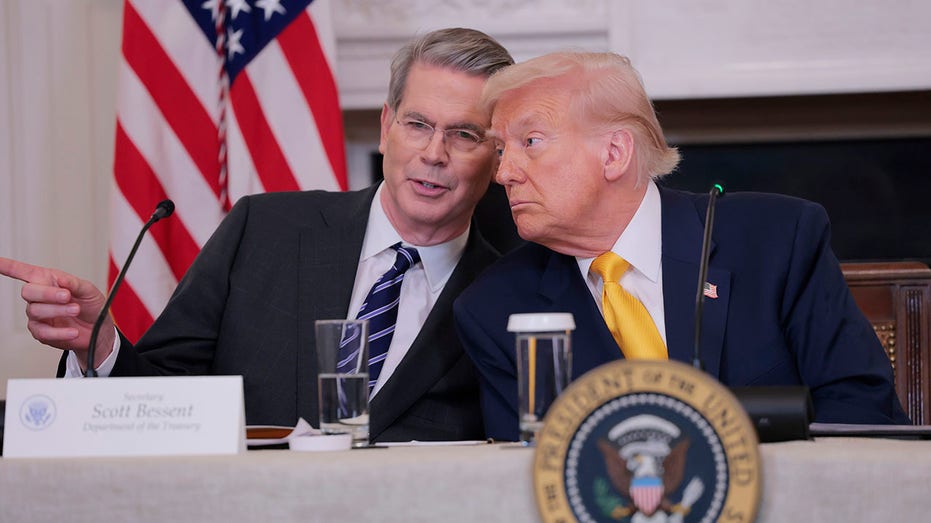

The Senate passed the Guiding and Establishing National Innovation for U.S. Stablecoins (GENIUS) Act on Tuesday, after the landmark crypto legislation faced a number of hurdles before making it across the finish line in the upper chamber.
One of the bill’s biggest advocates is Senate Banking Committee Chairman and former presidential candidate Tim Scott, R-S.C., who led the bill through his committee with Democrat support. Scott said the GENIUS Act "is the first of its kind" after the bill passed the senate in an exclusive interview with Fox News Digital.

Senator Tim Scott, R-S.C., speaks during a confirmation hearing in Washington, D.C., Feb. 27. (Al Drago/Bloomberg via Getty Images / Getty Images)
"We're on the cusp of doing something that's never been done in the history of the country, " Scott explained. "This is more about democratization than it is about Democrats or Republicans. This is about making sure that single mothers like the one that raised me, she can have an expectation that this digital economy will actually lower costs and let her use those dollars on other priorities."
The bipartisan bill, which was introduced by Sen. Bill Hagerty, R-Tenn., encountered challenges along the way to the Senate Floor after Democrats blocked the bill in early May. Senate Majority Leader John Thune, R-South Dakota, said he wondered if it was "simply Democrats obstructing because they want to deny Republicans, or President Trump, a bipartisan win" at the time of last month’s vote.
The legislation’s key component is establishing a regulatory framework for payment stablecoins, a signal that Congress and the federal government are taking the crypto industry more seriously.
Treasury Secretary Scott Bessent applauded the legislation Tuesday morning ahead of the bill’s passage, furthering the Trump administration’s support for the crypto industry.

WASHINGTON, DC - MARCH 07: U.S. Secretary of Treasury Scott Bessent and U.S. President Donald Trump look on during The White House Digital Assets Summit in the State Dining Room of the White House on March 07, 2025 in Washington, DC. Trump held the s (Anna Moneymaker/Getty Images / Getty Images)
"Recent reporting projects that stablecoins could grow into a $3.7 trillion market by the end of the decade," Bessent posted to X. "That scenario becomes more likely with passage of the GENIUS Act."
The bill now heads to the House, and should it pass the lower chamber, it would wind up at the president’s desk. Senator Tim Scott told Fox he’s optimistic that the GENIUS Act will be signed into law by August.
"Getting it out of the Senate passed means that we've done our part of the job, the part that I control the most, done hopefully, and celebrated across the country," Scott told Fox News Digital. "And then the House gets to work to figure this process out. I believe we'll see the President's signature on legislation frankly by August."

The number of people worldwide that own at least $1 million worth of cryptocurrency has soared. (iStock)
Industry leaders also rallied around the bill, as Solana Policy Institute President and former Blockchain Association President Kristin Smith told Fox News Digital the legislation would unlock "tremendous potential."
"This GENIUS ACT will establish clear rules for stablecoins, unlocking tremendous potential for more efficient payments and financial services," Smith explained. "We applaud the Senators and their staff who have championed this critical framework and look forward to swift action in the House to get this across the finish line."
The timeline for a House vote remains unclear, but Senator Scott and the Trump administration's eagerness to get the GENIUS Act signed into law will likely play a role in the process.
